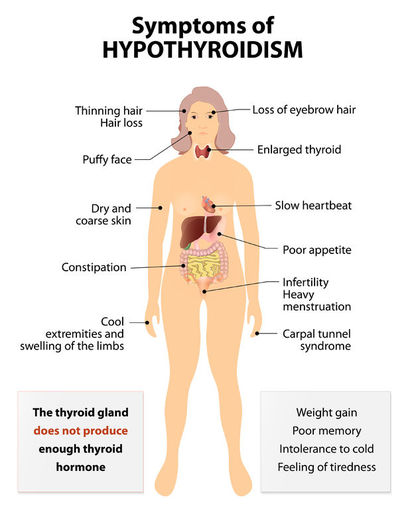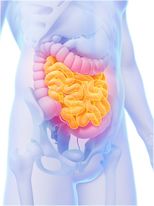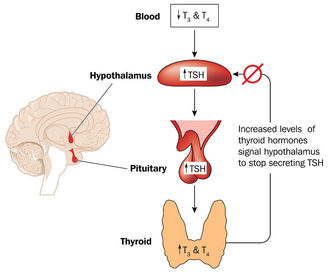 I am seeing more and more patients in my practice affected by autoimmune disease. Some of the more common autoimmune diseases I encounter are Hashimoto’s thyroiditis (a form of hypothyroidism), Graves' disease (a form of hyperthyroidism), Celiac disease (a strong intolerance to gluten), psoriasis (autoimmunity affecting the skin) and rheumatoid arthritis (autoimmunity affecting the joints). There are also some conditions that are not commonly thought of as autoimmune, but may have an autoimmune component and therefore fall on the autoimmune spectrum, including eczema and endometriosis. An interesting question to ask is: What do all these conditions have in common? What Is Autoimmunity? Autoimmunity literally means that your immune system is reacting to components of your own body as if they were foreign invaders! As your immune system develops during infancy, it is trained to differentiate self from non-self, so that it can accurately distinguish what can be harmful to you and what isn’t. Unfortunately, with autoimmunity, the immune system becomes confused and starts to attack self. The 3 Major Contributors To Autoimmune Disease Most people come and see a healthcare practitioner only after they have had symptoms of autoimmune disease for a while, making it difficult to pinpoint and study the origin of autoimmune disease. However, because of the growing incidence of autoimmune disease in North America, there has been more interest recently to study this in more depth. It has been found that there are 3 main triggers for autoimmune disease (Campbell, 2014; Ballantyne, 2013):
Various environmental factors can also trigger autoimmune disease. These include bacterial and viral infections (that result in the formation of autoantibodies because the bacteria or viruses’ proteins look similar to our own proteins), heavy metals, chemical toxicants, silicone breast implants, emotional stress, vitamin and nutrient deficiencies, and drugs (Campbell, 2014; Ballantyne, 2013; Myers, 2015). Last but not least of the 3 known triggers is a leaky gut (aka increased intestinal permeability). This is perhaps THE most important trigger. The current research suggests that leaky gut is a NECESSARY precursor to autoimmune disease! That means that, even if you have the genetic susceptibility and an environmental trigger but if your gut barrier is intact, you won’t develop autoimmune disease. Isn’t that great news? The current research suggests that leaky gut is a NECESSARY precursor to autoimmune disease! What Is “Leaky Gut”?
Your gut is a continuation of your skin inside of you, and as such, it functions as a barrier between the outside world and the inside world. Therefore, to work properly, it can’t just let anything through into the bloodstream. There are tight junctions between each cell of the gut lining preventing most things from reaching the bloodstream before they are properly digested. Also, a huge part of your immune system is found right within the tissues surrounding the gut, sampling what’s coming in and making sure it’s “safe”. Beyond your own cells, the beneficial bacteria in your gut are also essential for proper digestion and immunity, and also act as a line of defence to prevent pathogens from getting through. When your gut barrier becomes compromised and hyperpermeable, it allows food particles and pathogens through which shouldn’t be there. A gut can become leaky through (Ballantyne, 2013):
What Can You Do To Help Repair A Leaky Gut? Fortunately, there are many things you can do to help heal a leaky gut! It does require a lot of work, since no supplement can replace improving your diet and lifestyle. Avoiding some of the food triggers that damage the gut and replacing them with whole, unprocessed foods is extremely important for lasting changes. You can identify your food triggers through a specific elimination diet. IgG food sensitivity testing can also be helpful to guide you in avoiding foods that are causing the most damage in your case. Supplements to help eliminate toxins and heal the gut lining are also very important, but you need to eliminate the triggers first before supplements can do their job properly. Stool testing can identify if you have an imbalance in your good gut bacteria. Stress management is also critical in helping your gut heal. A chronic leaky gut can also lead to malabsorption of vital nutrients that are necessary to help your gut heal, so I often do some testing to target supplementation to what each specific patient needs. Re-inoculating the gut with specific probiotics is also very important. I have seen many patients’ health improve after we implement an individualized protocol based on these principles. The changes can sometimes be very dramatic! If you are suffering from an autoimmune condition and are ready to make some diet and lifestyle changes, I invite you to come on in for an initial assessment. I’d love to help you! Now, I’d like to hear from you! What autoimmune condition have you struggled with? Have you seen dietary and lifestyle changes make an impact on your health? Can you identify with some of the triggers I’ve mentioned? In health, Dr. Tamar References Ballantyne, S. (2013). The Paleo Approach: Reverse autoimmune disease and heal your body. Las Vegas, Nevada: Victory Belt Publishing. Campbell, A. W. (2014). Autoimmunity and the Gut. Autoimmune Diseases, 2014, 1-12. doi:10.1155/2014/152428 Myers, A. (2015). The Autoimmune Solution: Prevent and reverse the full spectrum of inflammatory symptoms and diseases. New York, New York: Harper One. Image 1 copyright: <a href='http://www.123rf.com/profile_sph1410'>sph1410 / 123RF Stock Photo</a> Image 2 copyright: <a href='http://www.123rf.com/profile_eraxion'>eraxion / 123RF Stock Photo</a>
0 Comments
 Many people come to me at my practice because they have difficulty losing weight and feel that their metabolism is slowing down. Your master gland for controlling metabolism in the body is your thyroid gland, a butterfly-shaped gland at the base of your neck. It is estimated that thyroid disorders affect 0.5-0.8% of the population, but those estimates may be on the low side. Naturopathic doctors such as myself who have taken additional training are now able to prescribe natural desiccated thyroid to help restore optimal thyroid function. Many people have been told that they have normal thyroid function after an initial screening test (TSH), but on further testing, one or both of their thyroid hormones are off. So, I usually screen my patients who experience several low thyroid symptoms with a full thyroid panel to make sure that their thyroid is functioning optimally. Symptoms of Hypothyroidism What are low thyroid symptoms? If you think about it, if your metabolism is slowing down, you will see repercussions throughout the body. Digestion will slow down, thinking will slow down, and the pounds will start adding up. Here is a list of common signs and symptoms of hypothyroidism: -Dry and coarse skin -Difficulty tolerating cold temperatures -Sluggish digestion and constipation -Slow thinking -Weight gain -Puffiness (you may notice puffiness in the face) -Slow heart rate -Delayed relaxation of ankle reflexes (this is tested during a physical exam) Having several of these symptoms does not necessarily mean that you have a thyroid issue. Many of these symptoms are non-specific, so they may be due to many other imbalances in the body. That’s why testing is so important. Testing for Hypothyroidism I usually do a full thyroid screen when I test for thyroid disorders, which includes: -TSH -fT4 -fT3 -TPO antibodies If you thought you had a thyroid issue or your doctor suspected it, you’ve probably had your TSH (thyroid stimulating hormone) tested. This hormone is secreted by the pituitary gland (at the base of your brain) and acts as a manager to tell the thyroid what to do. If the thyroid isn’t producing enough thyroid hormones, TSH will typically be high, as the manager is working hard, trying to get the thyroid to do its job. However, there is a huge “normal” range for TSH. If you’re within the normal range but still have symptoms, your levels may be sub-optimal. As a naturopathic doctor, I’m checking to see if you’re actually within the optimal range, which is a smaller sub-section of the normal range.
The next hormone to look at is your free T4 levels. This is a pro-hormone produced by the thyroid which needs to be converted to free T3. It’s the free T3 that is actually active within the tissues, speeding up your metabolism. If you’ve been taking Synthroid or its generic form, levothyroxine, you are getting synthetic T4. This T4 needs to be converted into free T3. However, many people take Synthroid, regain normal TSH and fT4 levels, but still have low thyroid symptoms because they are not converting the fT4 into fT3 properly. That conversion process depends on many things, including stress levels, heavy metal exposure, and minerals such as selenium and zinc. TPO antibodies are useful for screening for Hashimoto’s thyroiditis, an auto-immune condition where the body misguidedly attacks its own thyroid tissue, leading to hypothyroid symptoms. If you have this, it makes a big difference in how you will be treated from a naturopathic perspective, because our treatments will not only be aimed at getting thyroid function back, but also at decreasing the auto-immune response using diet, lifestyle, and supplementation. What Affects Conversion of T4 into T3? The conversion of T4 (inactive) into T3 (active) requires many factors to be in place for it to work optimally. The deiodinase enzyme is the enzyme through which this reaction takes place. This enzyme can be slowed down by (Hui, 2016): -Lack of progesterone (common as women enter perimenopause) -Low or high cortisol levels -Toxins and heavy metals such as mercury -Inadequate selenium, zinc, and other trace minerals and vitamins -Stress or many chronic diseases Why Desiccated Thyroid? Desiccated thyroid is not for everyone affected with hypothyroidism. However, now that you have a basic knowledge of how the thyroid works, you’ll understand why someone might require desiccated thyroid rather than Synthroid (only T4). Desiccated thyroid in Canada, called Erfa, is a standardized natural extract from a porcine source. Since it contains both T4 and T3, it can be especially useful for those who convert T4 poorly to T3. As well, since it is an extract of the whole thyroid gland, it also contains other nutrients that act as building blocks for the thyroid to function properly. In a randomized, double blind, crossover trial, when patients spent 12 weeks on Synthroid followed by 12 weeks on desiccated thyroid, or the other way around, 43% of patients preferred desiccated thyroid over Synthroid while only 19% preferred Synthroid (Hoang et al., 2013). Those on desiccated thyroid also tended to lose more weight. As with other drugs, patients on desiccated thyroid must be closely monitored to make sure that they are on an optimal dose for them which does not cause any side-effects. Is Desiccated Thyroid for You? If you would want to find out if desiccated thyroid is a good option for you, book an appointment at either of my locations, and I would be happy to help you out! We will do a thorough assessment and see if you would be a good candidate, or if there are other avenues that should be explored first (or in conjunction). If you think your health issues may be related to your thyroid, just give us a call! References Hoang TD et al. Desiccated thyroid extract compared with levothyroxine in the treatment of hypothyroidism: A randomized, double-blind, crossover study. J Clin Endo-crinol Metab 2013;98:1982-90. Epub March 28, 2013. Hui F. Clinical Pearls in Assessing & Treating The Thyroid. Evidence Based Nutrition Module 3: Bio-identical Hormones Conference. February 2016. Images from 123RF.com |
AuthorDr. Tamar Ferreira is a Naturopathic Doctor in Brampton, Ontario. Her areas of focus include digestive health, hormone balance, and skin conditions. Topics
All
Archives
May 2020
|
118 Queen St. W., Suite 205
Brampton, ON
L6X 1A5
905-451-3963





 RSS Feed
RSS Feed